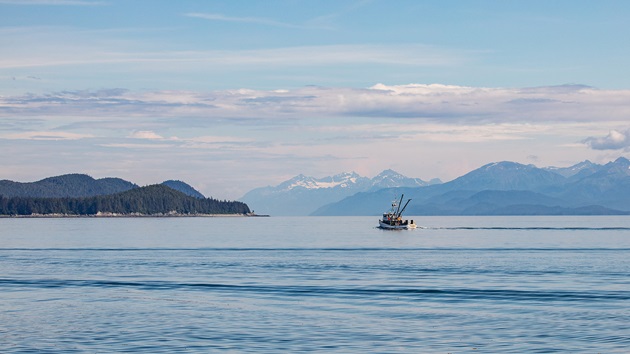Managing fisheries sustainably would increase global food supply
The Marine Stewardship Council says the world is missing out on enough protein to meet the yearly needs of 72 million people, because not all fisheries have been sustainably managed [1].
Seafood is a key source of nutrients and protein and plays a vital role in the diets of many. Over 3.3 billion people around the world get at least 20% of their daily animal protein intake from fish [2].
As the global population continues to rise, it is increasing pressure on this valuable, natural resource. Global consumption of seafood has risen by 122% in the last 30 years [3]. Over a third of global fish stocks are now fished beyond sustainable limits, with this trend continuing to worsen slightly [4].
However, latest estimates suggest that if global fisheries had been better managed, 16 million tonnes more seafood could have been harvested every year, helping to feed a growing population [5].
The MSC’s analysis shows if globally adopted, sustainable fishing practices would increase the additional protein available to meet the yearly needs of a population equal to that of the UK and Ireland combined.
The global population is set to reach 10 billion by 2050 [6] and food production urgently needs to be made sustainable and equitable to ensure healthy diets for all. Effective management of fisheries allows stocks and ecosystems to recover, in turn increasing the amount of fish that can be sustainably harvested in perpetuity.
Dr Rohan Currey, Chief Science and Standards Officer, Marine Stewardship Council said: “Tackling overfishing is a ‘win-win’ for our planet. By conserving our rich marine resources, we also enable more people to have the protein they need to live healthily. We know the practices that need to be adopted in order to enable sustainable fishing. What we need now is international will and cooperation to implement these across all waters, borders and species globally. Future generations have the right to sustainable food sources. As the global population continues to rise, the need to harness our natural resources responsibly is more urgent than ever.”
In recent years, more fisheries than ever before have been adopting sustainable fishing practices. In 2020 there were 409 fisheries around the world certified to the MSC’s sustainability standard, with another 89 undergoing assessment [7]. To be MSC certified, a fishery must show the fish stock is healthy, that it minimises its impact on the environment and has effective management in place.
However, to accelerate change, fisheries need the support of governments to ensure that catch limits are in line with scientific advice, that illegal, unregulated and unreported fishing is tackled, and that harmful subsidies which encourage overfishing around the world, are eliminated.
ENDS
References
[1] Figure calculated based on the following:
> 16 million more tonnes of seafood could be harvested each year if global fisheries were better managed (Costello et al)
>> 16 million tonnes of seafood provide over 1.3 million tonnes of edible protein (where 82% is used for human consumption and of this 10% is edible protein)
>>> This is 72 million times the recommended annual intake of protein per person (where recommended daily intake is 50g, equivalent to 18.25kg per year)
Full details outlined in embargoed briefing: MSC Insights: Sustainable Fishing, Higher Yields and the Global Food Supply
[2] UN FAO State of Food Security and Nutrition in the World (Sofi 2020)
[3] UN FAO State of the world fisheries (Sofia 2020) Figure 2
[4] UN FAO State of the world fisheries (Sofia 2020) Figure 19
[5] Costello et al: Global fishery prospects under contrasting management regimes, Proceedings of the National Academy of Sciences (PNAS) 2016 113(18) 5125-5129
[6] UN World Population Prospects: 2019
[7] MSC annual report 2019-20: Celebrating and supporting sustainable fisheries

